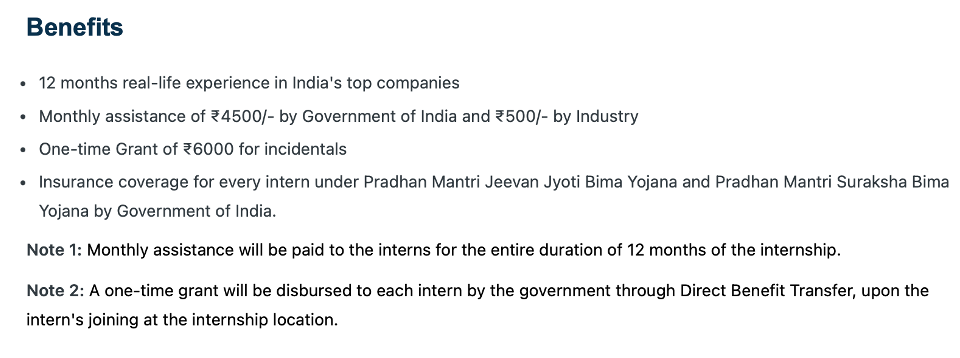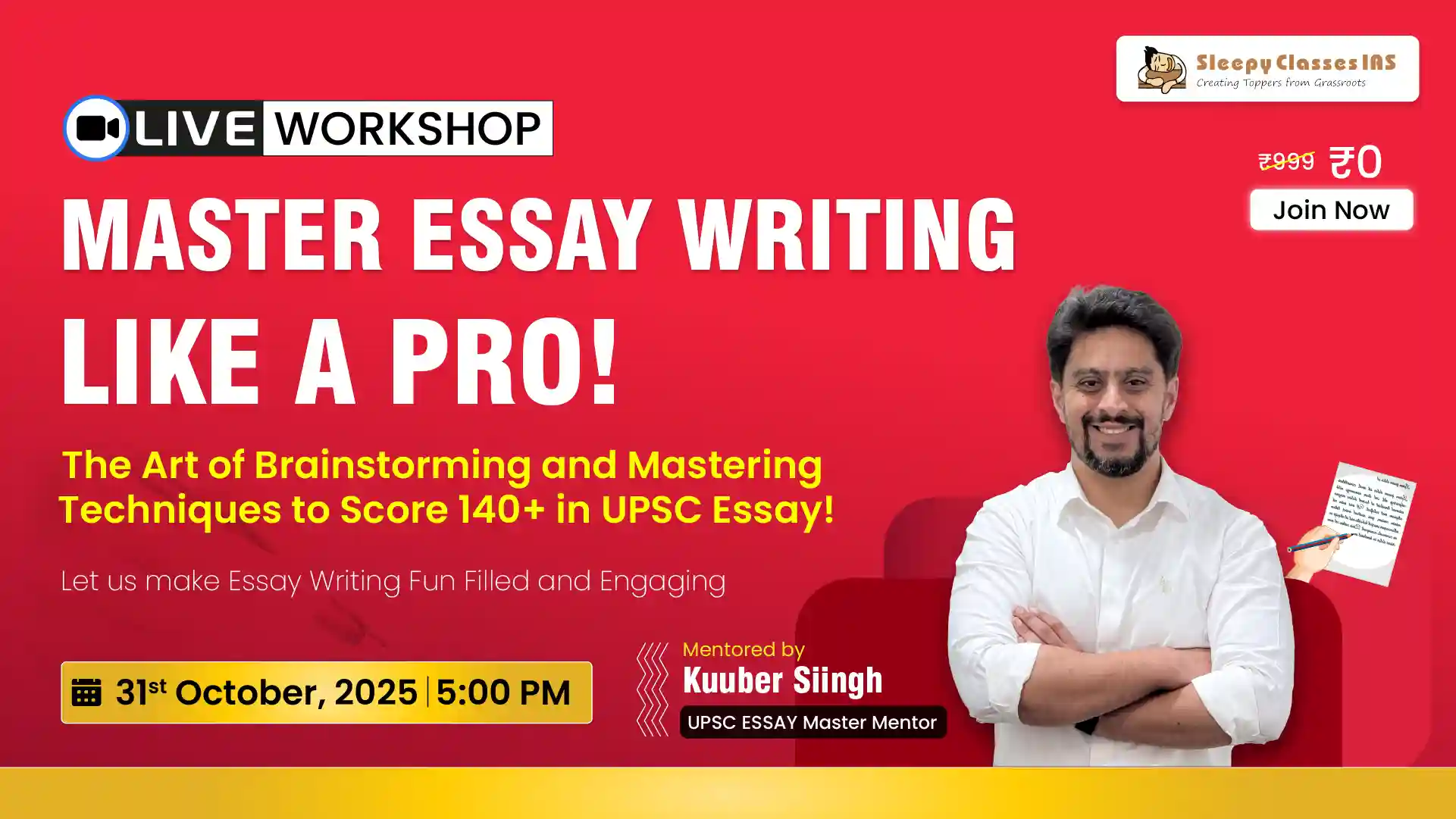Question 1
Polity | Vice-President | Medium | The Hindu
SOURCE
Consider the following statements with respect to the Vice-President of India:
1. The Vice-President may act as the President of India in his/her absence and can perform the duties of the Chairman of the upper house.
2. A member needs to vacate his/her seat as an MP or MLA to become the Vice President of India.
Which of the statements above is or are correct?
A. 1 only
B. 2 only
C. Both 1 and 2
D. None of the above
Solution & Detailed Explanation
Answer: (B) 2 only
Detailed Explanation
- Article 64: The Vice-President to be ex officio Chairman of the Council of States.—The Vice-President shall be ex officio Chairman of the Council of the States and shall not hold any other office of profit:
- Provided that during any period when the Vice-President acts as President or discharges the functions of the President under article 65, he shall not perform the duties of the office of Chairman of the Council of States and shall not be entitled to any salary or allowance payable to the Chairman of the Council of States under article 97.
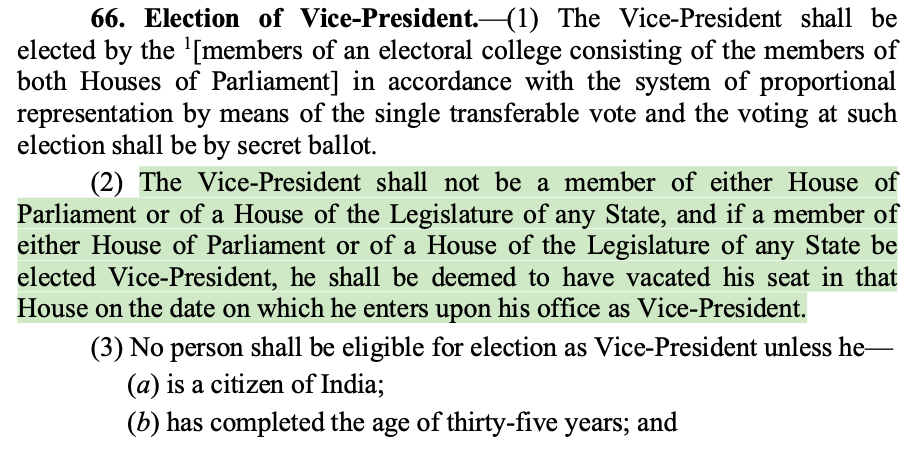
Question 2
Polity | Parliamentary Committees | Medium | The Hindu
SOURCE
Consider the following pairs: (Parliamentary Committees and total members)
Committee of Public Undertaking: 30 (LS)
Estimates Committee: 22(15LS+7RS)
Public Accounts Committee: 22(15LS+7RS)
How many pairs are correctly matched?
A. Only one
B. Only two
C. All three
D. None of the above
Solution & Detailed Explanation
Answer: (A) Only one
Detailed Explanation
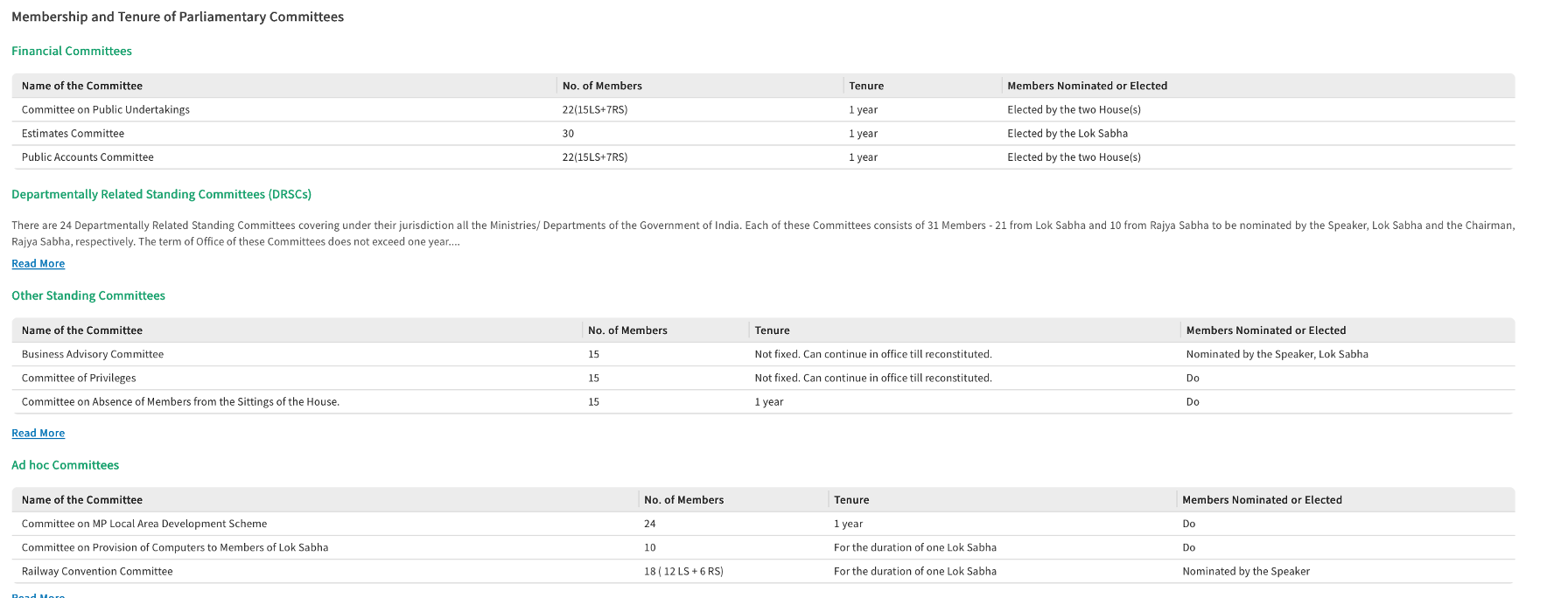
Question 3
Science and Technology | Space | Medium | The Hindu
SOURCE
Consider the following:
1. NISAR is a sun-synchronous satellite.
2. The S-band ranges between 1-2 GHz and is known for its ability to penetrate obstacles like foliage and light rain, making it suitable for navigation and mobile satellite services.
Which of the statements above is or are correct?
A. 1 only
B. 2 only
C. Both 1 and 2
D. None of the above
Solution & Detailed Explanation
Answer: (A) 1 only
Detailed Explanation
- NISAR is a sun-synchronous satellite.
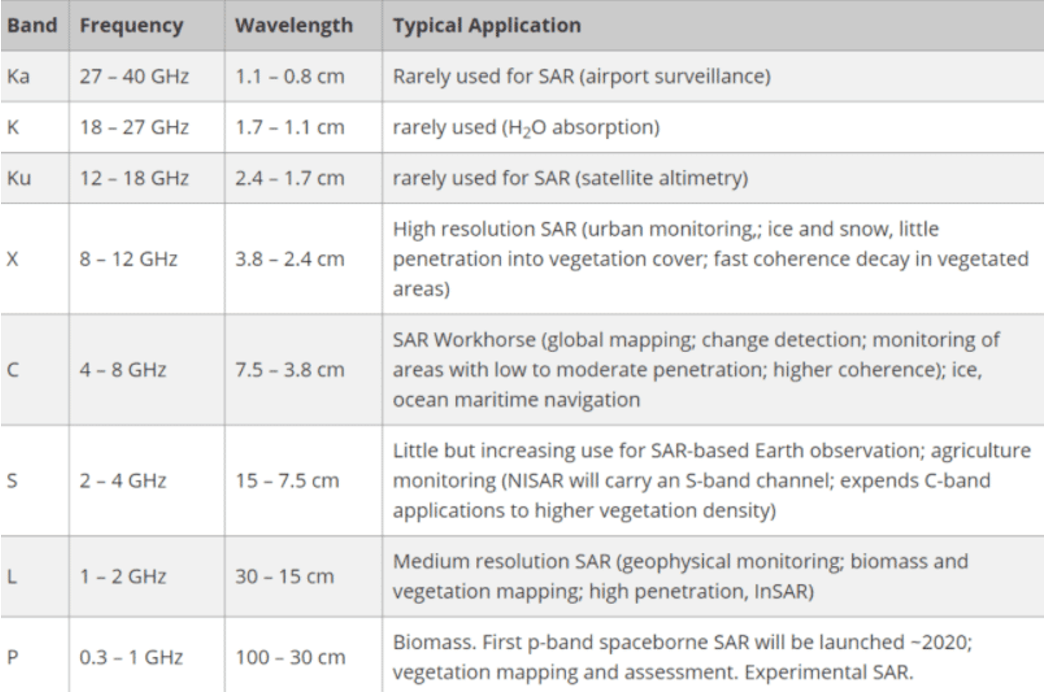
Question 4
Polity | Elections | Easy | The Hindu
SOURCE
What is the status of right to vote in India?
A. Natural and may be elevated to Statutory
B. Statutory and may be elevated to Fundamental
C. Natural and may be elevated to Constitutional
D. Statutory and may be elevated to Constitutional
Solution & Detailed Explanation
Answer: (D) Statutory and may be elevated to Constitutional
Detailed Explanation
- The legal status of the right to vote has been a subject matter of debate in various cases in our country. In the N. P. Ponnuswami case (1952), a Constitution Bench of the Supreme Court held that the right to vote is a statutory right and subject to limitations imposed by it. In the Jyoti Basu case (1982), the court reiterated that the right to vote is neither a fundamental right nor a common law right but a simple statutory right. Subsequently in many cases, the same ratio was followed and upheld by the court. In the PUCL case (2003), Justice P. V. Reddy observed that the right to vote, if not a fundamental right, is certainly a ‘constitutional right.’
- However, a Constitution Bench of the Supreme Court in the Kuldip Nayar case (2006), again held that right to vote is only a statutory right.
- In the Raj Bala case (2015), a division bench of the Supreme Court, based on the ratio in the PUCL case, held that the right to vote is a constitutional right. However, in the Anoop Baranwal case (2023), the majority opinion, reiterated the judgment in the Kuldip Nayarcase, that the right to vote is only a statutory right. Hence, the current legal status of the right to vote is that it is a statutory right.
- Justice Ajay Rastogi, in his partial dissent in Anoop Baranwal, noted that the right to vote is an expression of the choice of the citizen, which is a fundamental right under Article 19(1)(a). Right to vote is intrinsic to free and fair elections that is part of the basic structure of the Constitution. Even if not considered a fundamental right, this right originates from Article 326 of the Constitution and is shaped by statutes made by Parliament. Considering these factors, the Supreme Court may consider elevating the status of right to vote into a constitutional right.
Question 5
Economy | Industry | Easy | The Hindu
SOURCE
Which among the following is not one of the core industries?
A. Crude oil
B. Mining
C. Fertilizers
D. Refinery Products
Solution & Detailed Explanation
Answer: (B) Mining
Detailed Explanation

Question 6
Governance | Schemes | Medium | The Hindu
SOURCE
Consider the following:
1. The duration of the Prime Minister’s Internship Scheme will be 6 months.
2. The interns will get Rs. 5000 as monthly stipend during the course of their internship.
Which of the statements above is or are correct?
A. 1 only
B. 2 only
C. Both 1 and 2
D. None of the above
Solution & Detailed Explanation
Answer: (B) 2 only
Detailed Explanation
